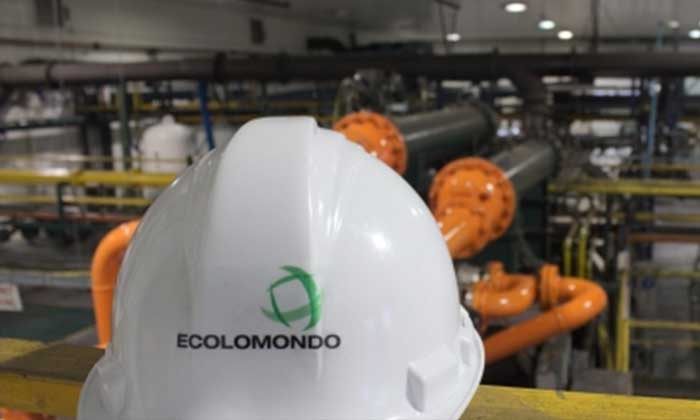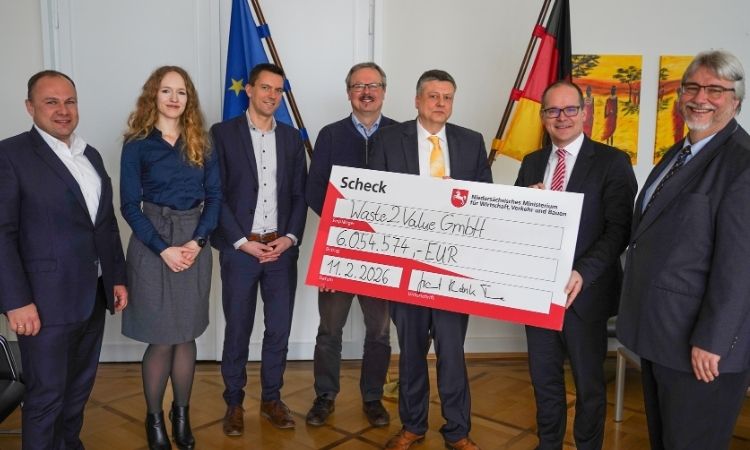Energy trading company signs offtake agreement for pyrolysis oil in the UK
ShipInsight – an online magazine focused on ship operation, ship management and marine journalism – reports that an energy and commodity trader Vitol and Wastefront, the Norwegian waste tire pyrolysis company, have announced a 10-year offtake agreement for the production of liquid hydrocarbons (pyrolytic fuel oil) and certain non-liquid products which will be produced at Wastefront’s first waste tire pyrolysis plant in Sunderland, UK, on its completion in 2023.
In addition to the offtake agreement, Vitol and Wastefront have also established a framework agreement for the 10-year offtake from future end-of-life tire pyrolysis plants to be developed and built by Wastefront.
According to the magazine, Vitol will buy all available liquid hydrocarbons, including naphtha, distillates and bunker oil, from the first plant in Sunderland – which is expected to have an annual processing capacity of 60,000 metric tons of waste tires – from which it is expected that Vitol will buy a volume of up to 30,000 metric tons of products per annum. The agreements are constructed to incentivize both parties to optimize sustainability elements in the value chain and to utilize existing and future national and supranational emission reduction schemes.
Besides, the magazine reports that Wastefront’s plant will be the first to combine conventional methods with the company’s own proprietary process, which will minimize the environmental impact typically associated with traditional tire pyrolysis. According to the source, the company’s pyrolytic reactors comply with all local environmental regulations and the technology meets with the emissions levels and specifications established by the European standards. The gas purification system removes pollutants, organic compounds and harmful solid particles without releasing unwanted by-products into the environment.
“The estimated 29 million metric tons of vehicle tires which reach the end of their lifespan each year represent an underreported but major cause of pollution due to their non-biodegradability,” – the magazine pinpoints. “By converting tire waste into usable commodities, Wastefront offsets carbon emissions, with the alternative to recycled commodities being crude oil.”
Wastefront’s Director and Co-Founder, Christian A. Hvamstad, commented “Our ambition is to create a new circular economy for dealing with waste issues, and partnering with Vitol in this offtake agreement is a key step in our journey. Together, we can contribute to a cleaner future by dealing with a specific waste problem, where end-of-life tires no longer end up in landfill, but instead are converted into viable commodities that can be used again. Both the Vitol and Wastefront teams have been cooperating closely in the development and configuration of the first plant in Sunderland to ensure it adheres to the current market climate and environmental standards, as well as position the plant to comply with foreseeable changes in regulation and to ensure that the plant will have the flexibility to adapt to future shifts in the commodities market.”
Chris Bake, Head of Origination at Vitol, commented, “Wastefront’s business model sits at the intersection of waste reduction and decarbonization, both key to addressing current environmental challenges. With the appropriate expertise, we believe these new fuels can be successfully integrated into the energy system. We are pleased to be partnering with Wastefront as they implement their proprietary technology to produce sustainable energy products, with a reduced environmental impact.”
Article by ShipInsight.
Weibold is an international consulting company specializing exclusively in end-of-life tire recycling and pyrolysis. Since 1999, we have helped companies grow and build profitable businesses.









